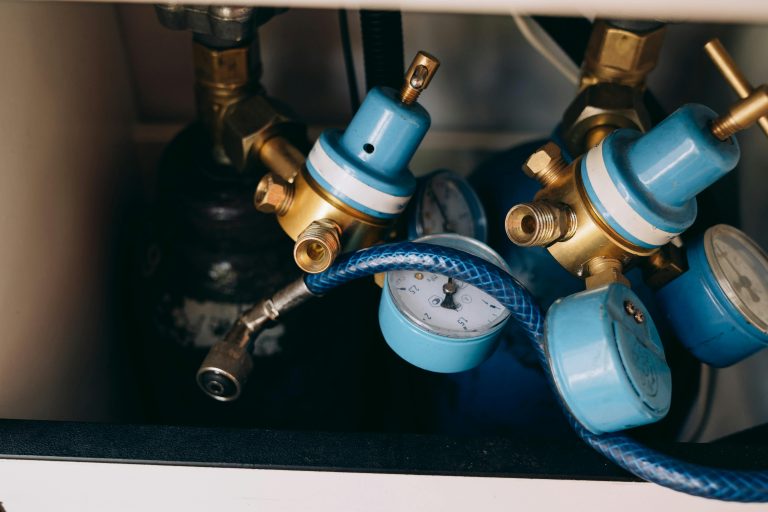Unexpected safety compliance inspections always happen at the wrong time. Moreover, during these checks, Category 1 hazards — the most serious risks — may be identified, which must be eliminated immediately to ensure tenant safety and avoid legal consequences.
In such situations, there is almost no time to prepare, yet compliance with safety standards is a mandatory requirement for all property owners. This guide covers what landlords need to do first, what the usual repair costs look like, and which financial options exist when the budget is already under strain.
Gas and Electrical Checks: What Landlords Need to Know
Every rental property must undergo regular gas and electric safety checks. These checks are not optional; they are mandatory and form the basis of the landlord’s legal responsibility. Here are the key aspects:
- Landlord gas safety check. By law, every rental apartment or house with a gas boiler or stove must undergo an annual inspection. Based on the results, the landlord receives the gas certificate, also known as CP12.
- EICR (Electrical Installation Condition Report). The landlord is also required to provide an electrical safety certificate. According to EICR regulations, this inspection is performed by a qualified electrician, usually every five years. However, if violations are found, an earlier check and updated documentation may be required.
Both certificates, gas and electrical, must be current and valid. Their absence not only endangers tenants but also exposes the landlord to fines and even prosecution.
EICR Regulations and Deadlines
The condition of electrical wiring and the elimination of associated violations are just as important as gas safety. An EICR determines how safe the wiring, sockets and electrical panel are.
What if the inspection reveals C1 hazards (immediate danger) or C2 issues (potentially dangerous)? The first category must be eliminated immediately, while the second requires the landlord to resolve the problem within 28 days. The property owner is obliged to act quickly and fix the issues with the help of a qualified specialist.
How long does an EICR last?
For private rental properties, an EICR generally lasts for five years. The exact duration is determined by the qualified electrician who performs the inspection and is stated on the report itself. There may be changes within this time frame, which usually happens when temporary solutions are made instead of comprehensive repairs.
What are the landlord’s repair responsibilities?
Landlords are responsible for maintaining a safe and habitable living environment. In terms of EICR regulations, this includes not only arranging the inspection itself but also eliminating all issues, recording them, and providing documented confirmation of completed work.
Average Contractor Rates and Urgent Repair Costs in the UK
Financial planning remains one of the most difficult tasks for landlords, since it is not easy to find contractors and calculate all expenses in a rush. Here are approximate service rates:
- Gas boiler service (annual): £80 — £120.
- Landlord gas certificate (CP12): £60 — £90.
- EICR (electrical certificate): £120 — £250 depending on property size.
- Minor repairs (wiring, sockets, alarms): £60 — £150 each.
- Gas boiler replacement: £1,800 -– £3,000.
How to Phase Urgent Works and Plan Payments
If the property fails inspection, there is no need to panic and fix everything at once. Prioritize issues by dividing them into the following categories:
- Category 1 hazards. Must be eliminated immediately as they can lead to injuries or even fatalities. These include: gas leaks, faulty boilers, exposed wiring, and missing alarms. During this time, it’s better to vacate the property.
- Secondary works. Not a direct threat, but requiring resolution in the near future. Examples include faulty sockets, broken light fixtures, or non-working burners.
- Cosmetic and energy efficiency issues. These can be postponed for months or linked to lease renewals. They are non-critical, but still should be addressed eventually.
Often, landlords can agree with contractors on staged work or installment payments. This allows avoiding a huge one-off bill and complying with regulations step by step.
Last-resort Options When the Budget is Tight
Sometimes, even installment payments are not enough, especially when several serious violations are found at once. It often happens that the most difficult breakdowns appear exactly during tough financial periods. In such cases, temporary measures can buy time and address urgent issues:
- Purchasing standalone smoke or CO alarms before permanent systems are installed. This serves as a temporary fix but still requires replacement later.
- Using temporary heaters while waiting for a boiler replacement. Just note that such devices cannot fully heat a home and may fail under constant use.
Last-resort note: if personal funds run out, a landlord may seek cash help for urgent fixes to cover the most immediate expenses. While this option can not replace long-term planning, it ensures tenant safety until major repairs are started and completed.
Conclusion
Landlord repair responsibilities are not just bureaucracy but a matter of tenant health and the integrity of the property itself. Regular gas and electric safety checks, monitoring compliance with EICR regulations, and budgeting for annual certificates reduce the risk of accidents and problems with inspectors.
Even the most organized landlords may face unexpected expenses. But knowing what a gas safety check involves, how long an EICR lasts, and what repair costs typically look like helps to prepare properly and allocate funds wisely.


